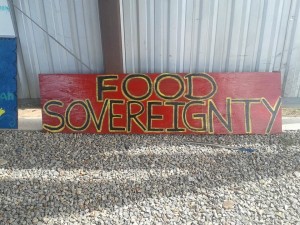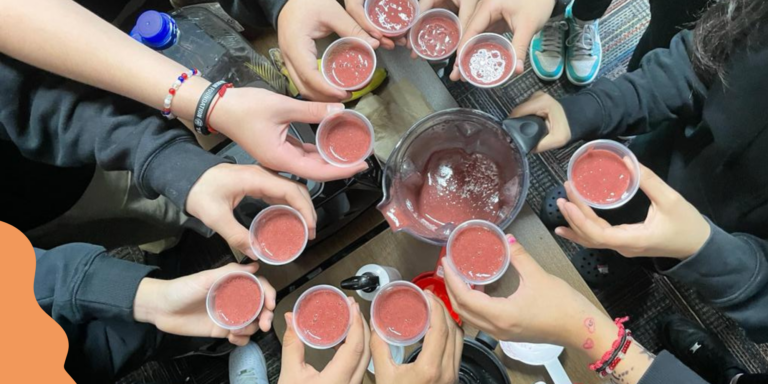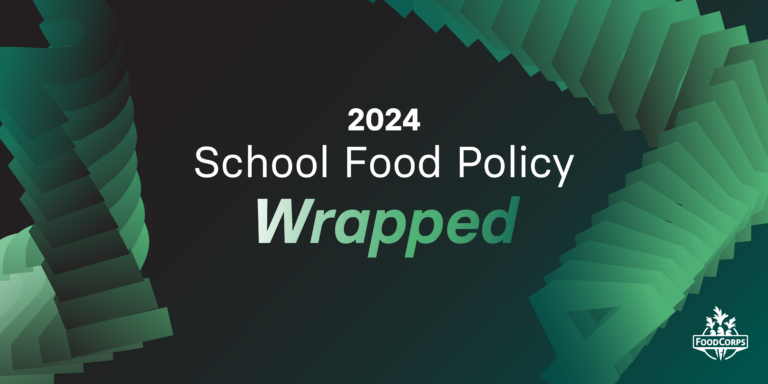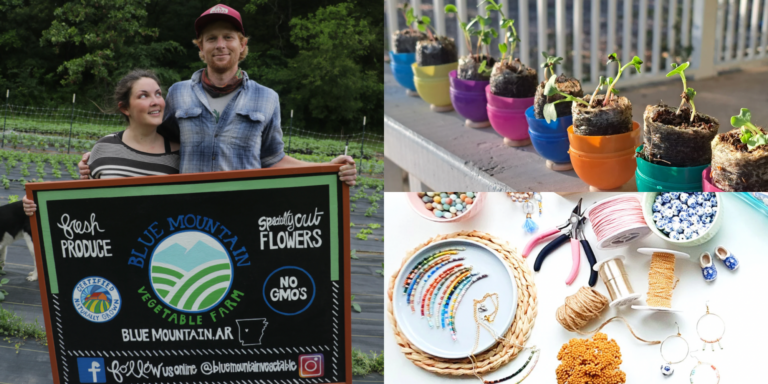“Becoming Actual Sovereign People”: Insight From a Young Apache Farmer
“Farming can be a hard job when there’s only so many people who think it’s something worth fighting for.”
“Farming can be a hard job when there’s only so many people who think it’s something worth fighting for.”

This Q&A was originally written by Emily Maheux (AZ ’16) and posted in 2016. It was last updated on September 8, 2022.
My name is Emily and I serve with Ndée Bikíyaa, The People’s Farm, on the White Mountain Apache Reservation. I grew up in Vermont and am currently spending my first year in the White Mountains enjoying the local cuisine. The farm is maintained by the tribe and is the only local agricultural producer on the reservation aside from small family farmers. It strives to provide fresh produce and education to the community. I am fortunate to work with Nehko, a farmer at Ndée Bikíyaa, who has graciously offered his thoughts on my questions on farming, food, community, and his personal aspirations.
***
Emily: What does your role at the farm look like?
Nehko: Transplant, prepare soil, plant, maintenance.
Emily: What made you want to work for the farm?
Nehko: There’s two answers. The beginning was for a job; then second was it became more of an actual…it became more of a lifestyle after working there for a while. It wasn’t a job anymore.
Emily: What is it that makes you feel passionate/purposeful about working at the farm?
Nehko: Reaching out to the people to bring them healthy produce. Well, not just healthy produce but teaching them about why it’s good to eat what we’re growing and show why that lifestyle is so important, why agriculture is so important.
Emily: Why do you feel that’s important?
Nehko: It’s important because that’s where all of our food comes from, is from the farm. We depended on the government, but now it’s good to branch off from that and start doing things on our own, becoming actual sovereign people.
Emily: What does food sovereignty mean to you?
Nehko: Having control of the way we do things and grow and what we sell and what, as Apache people, we eat.
Emily: What do you hope to do with yourself in the future? Your aspirations?
Nehko: Ultimately, to help the community out in any type of way that will benefit the health and livelihood of the people. And be a leader in the community.
Emily: Do you have any thoughts on how you want to do that?
Nehko: One is through agriculture, farming, and teaching.
Emily: What is your favorite food?
Nehko: Frybread! No. Hmmm…quesadillas. Yeah, quesadillas.
Emily: How has your experience growing up on the reservation impacted how and why you work for the farm?
Nehko: Well, growing up there, there was no access to good foods and people are used to living like that. And I think straying away from that and showing people that since I grew up like that and really haven’t had access to a lot of healthy foods. That’s how I grew up on the reservation. That’s why I work at the farm. … Seeing that stuff all around me makes me work towards preventing it and, who knows, maybe possibly curing it because maybe everything’s all linked to just eating healthier and living a better lifestyle. I think food is healing. Food can do a lot of different things for you. Farming can be a hard job when there’s only so many people who think it’s something worth fighting for.
Emily: If you were a vegetable, what would you be and why? A FoodCorps classic.
Nehko: Haha! I’d be a chili. They’re strong; they can last for days without water.
Emily: What are your hopes and dreams for the farm in five years?
Nehko: I would like to see more workers, more community support, expanding land usage for production and our orchard surviving. Networking out to more businesses and community enterprises. I’d like to see our vegetables in the stores. It would be cool to see the farm gaining more support in the next five years.
Thank you, Nehko, for your time and thoughtful responses!

5 Blender-Friendly Recipes For Sauces and More

Our 2024 Child Nutrition Policy Year in Review

9 Thoughtful Holiday Gifts Made by FoodCorps Alumni